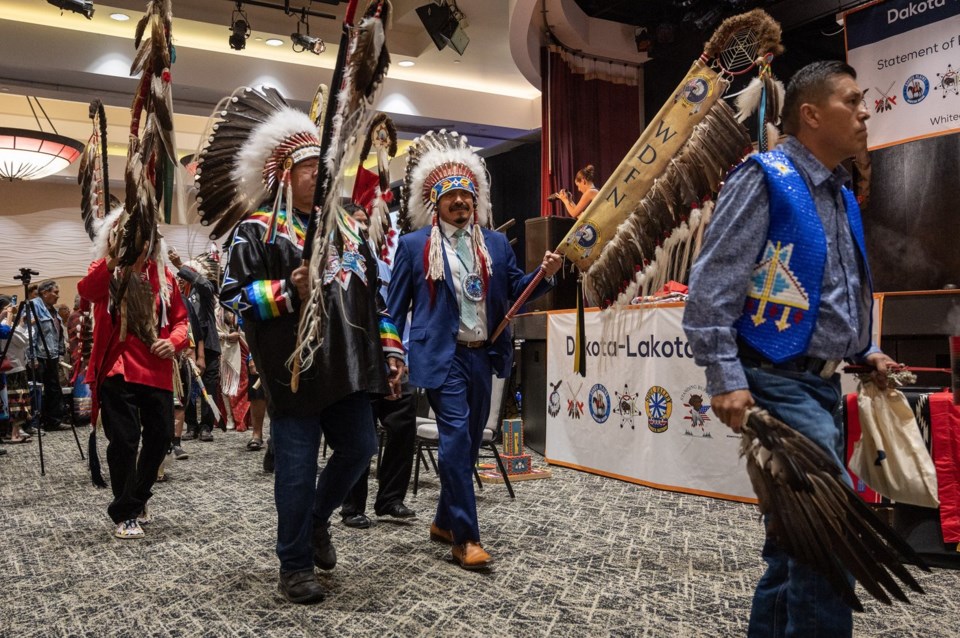WHITECAP DAKOTA FIRST NATION, SASKATCHEWAN ‚Äî Canada's Crown-Indigenous relations minister has apologized to nine First Nations in Manitoba and Saskatchewan following decades of the Dakota and Lakota –°¿∂ ”∆µ labelled as refugees.
Gary Anandasangaree said Monday at a –°¿∂ ”∆µ at Whitecap Dakota First Nation south of Saskatoon that the groups should have been formally recognized as First Nations in Canada.
"On behalf of the Government of Canada and all Canadians, we seek to begin to mend this injustice with three simple words: we are sorry," he said.
"We acknowledge you have been treated as second-class First Nations, as strangers here on your homeland in Canada, a Canada you helped defend, build and develop."
The apology was met with cheers from the crowd of more than 650 people.
The Dakota and Lakota, who have held land in Canada and the United States, have long had a strong presence in the country.
However, the Canadian government never recognized them as Aboriginal Peoples of Canada under the Constitution. Instead, they were viewed as strangers from the United States seeking refuge from the American military.
The Dakota and Lakota were defeated in battle by the Americans in the 1860s and 1870s, forcing many to move north. Canada allowed them to stay but ignored their title to land.
As a result, the Dakota and Lakota were not invited to sign treaties and received no treaty rights. They received smaller reserves and fewer economic supports than other Indigenous groups.
Anandasangaree said Canada's failure to offer recognition hurt generations of Dakota and Lakota. He noted they had pledged their allegiance to the Crown during the War of 1812, when the United States declared war against Britain.
"You were allies, you were not refugees," he said.
He added they were also subject to the residential school system, '60s Scoop and other policies that have harmed Indigenous people.
"There's no way to undo the years of collective trauma your people and nations endure to this day," Anandasangaree said.
"Despite the racism, discrimination, social and economic exclusion and lingering harms of colonialism, your dignity as Indigenous people remains unbroken."
He said Canada will work with the First Nations to develop treaties and agreements to affirm their rights in the Constitution.
Whitecap Dakota First Nation signed a self-government agreement with Canada in 2023 that officially recognized its members as Aboriginal Peoples under the Constitution.
It also recognized the Whitecap Dakota's ability to make laws on-reserve.
Whitecap Dakota First Nation Chief Darcy Bear said the apology was a long time coming.
"We had territories on both sides of the border -- and there was no border at the time -- and we've been here since time immemorial," he said.
"(Reserves) limited our opportunities but that's all going to change, and that's what we're looking for, that acknowledgment."
This report by The Canadian Press was first published July 15, 2024.
-- By Jeremy Simes in Regina
The Canadian Press




